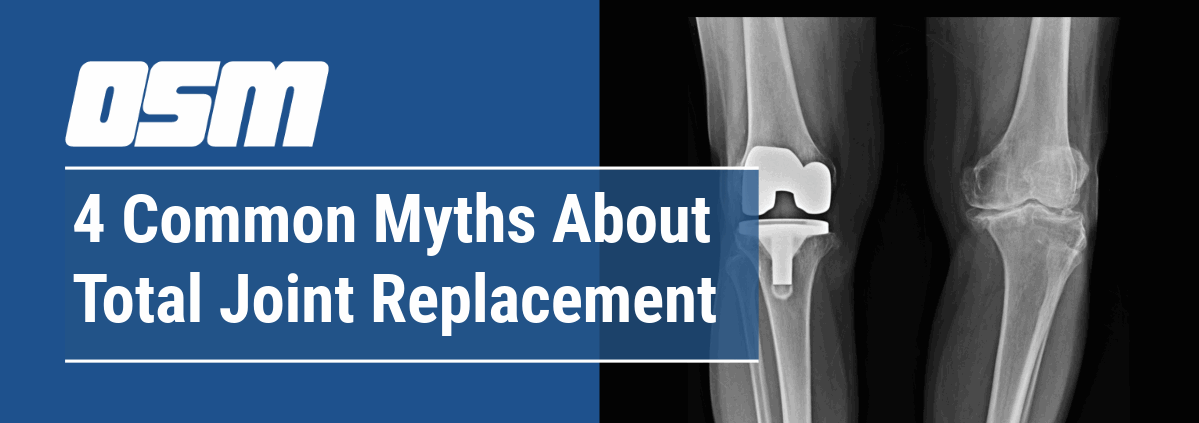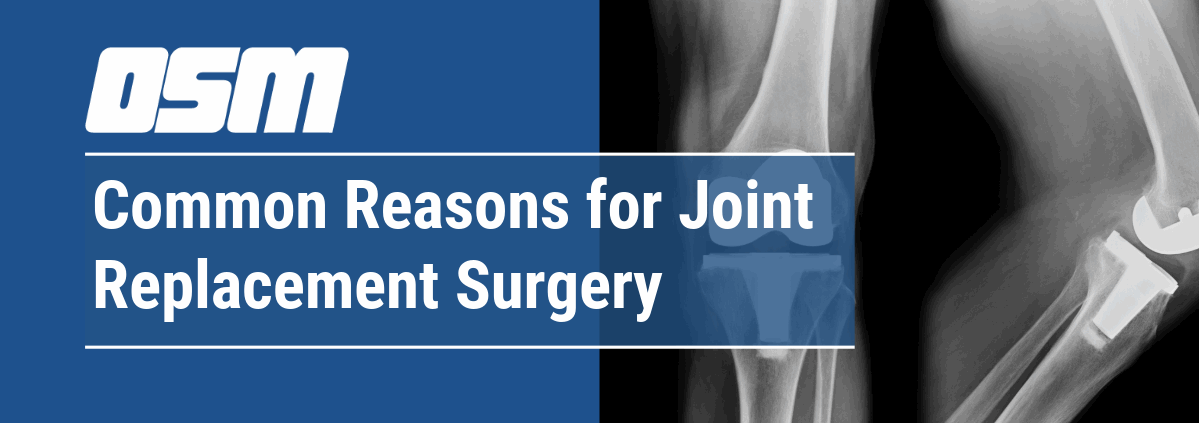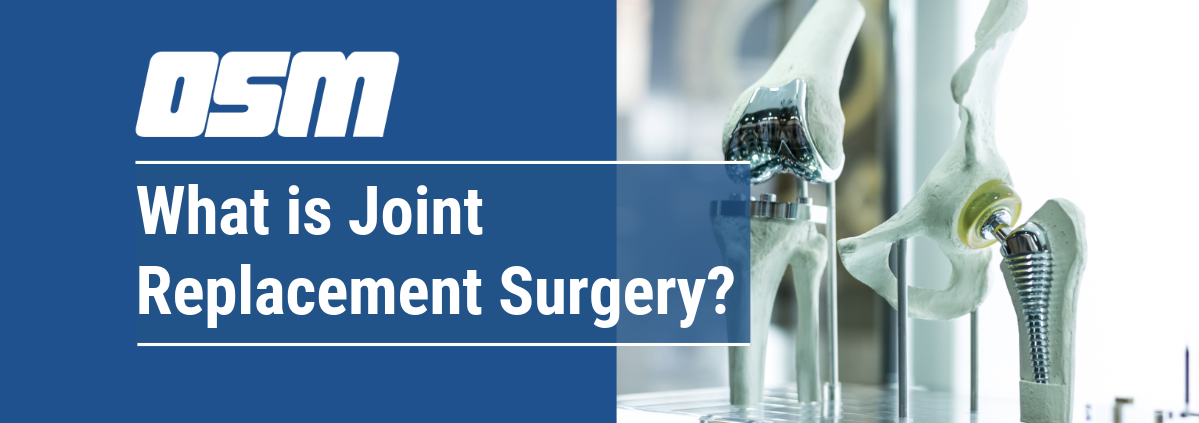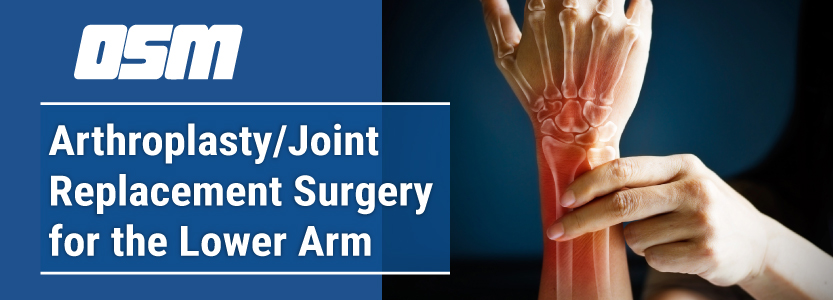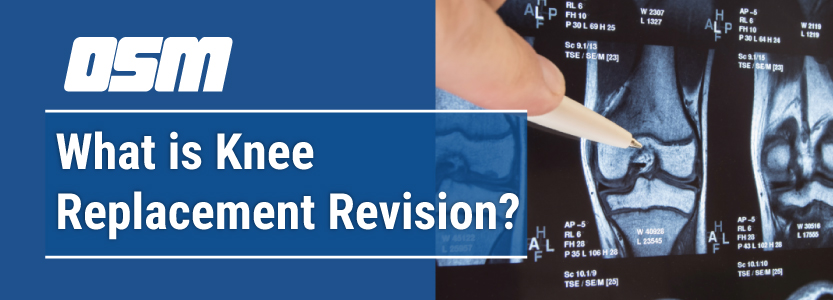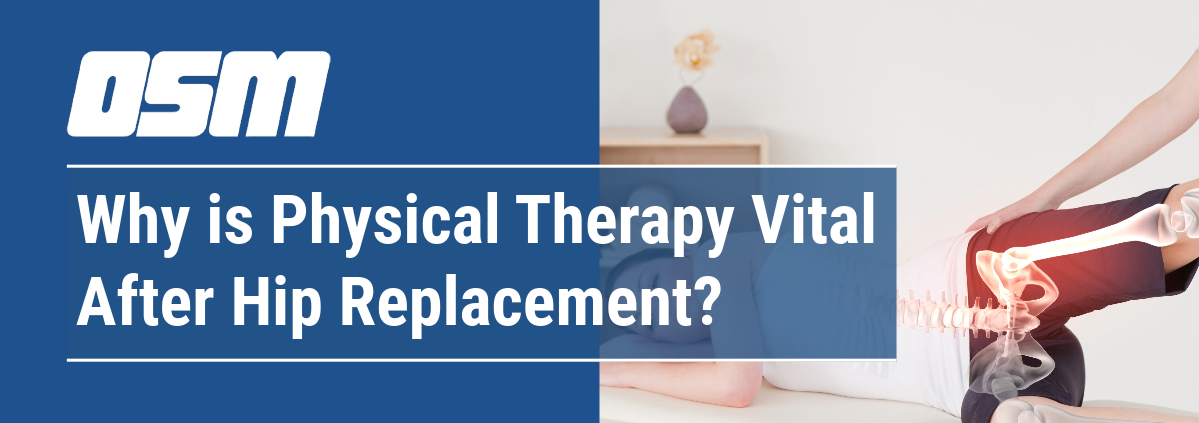4 Common Myths About Total Joint Replacement
Article featured on Beufort Memorial
Nearly 800,000 knee replacements and 500,000 hip replacements are performed each year in the United States, many of which are total joint replacements. When knee or hip pain gets too severe for you to function normally, your orthopedic surgeon will go into the joint in question and replace it with a new joint made from artificial materials.
This extremely beneficial surgery can reduce your pain dramatically and improve your mobility. Too many people, however, have misconceptions about the process of total joint replacement surgery and can put off having it, prolonging their pain and stiffness. We’re here to dispel those myths and get you back to the life you once enjoyed.
Myth #1: I’m Too Young for Joint Replacement
Fact: Total joint replacement is for people of any age whose hip or knee pain limits their daily activities and negatively impacts their quality of life. In recent years, the age of people having total joint replacements has trended downward, with adults in their 30s, 40s and 50s having the procedure. Joint replacements can help many people experiencing pain or stiffness related to arthritis, a joint injury, or the wear and tear of active living.
Another common age-related misconception is that the new joint will wear out and require revision surgery, in which an orthopedic surgeon must replace the implant. However, most joint implants today have longer lifespans than they used to, thanks to improvements in materials and surgical techniques. In addition, orthopedic teams have a better understanding of presurgical physical therapy, weight loss, rehabilitation and other strategies that lead to more successful joint replacement surgeries than in the past. Today, estimates suggest that artificial knee and hip joints can last 15 to 20 years, with some lasting longer than 25 years.
Myth #2: My Joint Pain Isn’t Bad Enough Yet
Fact: “Too often, people will think they don’t need surgery because they’ve adapted to their pain and don’t think it’s ‘that bad,’” says Dana Aiken, RN, total joint and spine coordinator. “But joint pain threatens your lifestyle by keeping you from doing the things you enjoy — playing with your kids, participating in sports or doing something as simple as taking a walk.”
There is no marker for how bad your pain must be to have a total hip or knee replacement surgery. Everyone experiences pain differently, and we build tolerance to pain over time. You might be surprised what a reduction in your pain feels like, and regardless of your pain level, regaining mobility is an excellent reason for having the surgery. The less mobile you are, the less active you become — and sedentary living can lead to other serious conditions, such as heart disease and diabetes.
Myth #3: Recovery Takes Too Long and Is Too Painful
Fact: Another common refrain when someone decides not to get total joint replacement surgery is, “I don’t have time for a long recovery process.” Fortunately, surgical advancements mean you’re not out of commission for long periods after your procedure.
Your recovery timeline depends on factors such as:
- Existing health conditions
- Which joint was replaced
- Your age
- Your typical activity level before the procedure
Your surgical recovery begins the day of your procedure. Your team will have you up and moving around a few hours after it’s over. Your hospital stay will average no more than a few days. Some people can even go home the same day.
You’ll start physical therapy almost immediately to begin strengthening the muscles around your new joint and help you perform regular activities of daily living. Physical therapy typically lasts between two and 12 weeks, depending on your specific needs. Most patients are back to their daily routines in one to three months.
Myth #4: Joint Replacement Will Limit Me in the Future
Fact: Some people fear that total joint replacement permanently restricts what they can do post-surgery. You will need to avoid high-impact sports for the longevity of your joints. However, this shouldn’t hold you back from doing low-impact activities, such as swimming and golfing.
Engaging in your favorite activities is beneficial to your recovery. Even light movement strengthens the muscles around your new joint and improves your joint’s range of motion. You may need a walker or crutches for the first few weeks. Your rehab team will help you progress off those as quickly and safely as possible.
You can also work with your physical therapist on your individual goals post-surgery. After all, helping you regain mobility is the reason for replacing your hip or knee in the first place. Are you an avid hiker or cyclist? Tell your physical therapist so they can tailor your therapy sessions and exercises to the activities you enjoy most.
The only way to know whether total joint replacement is the right choice for you is to explore your options. An orthopedic surgeon can answer your questions and ease any concerns so you can make the most informed decision possible. It’s time to stop letting joint pain rule your life and get back to enjoying life’s adventures, big and small.
The Orthopedic & Sports Medicine Center of Oregon is an award-winning, board-certified orthopedic group located in downtown Portland Oregon. We utilize both surgical and nonsurgical means to treat musculoskeletal trauma, spine diseases, foot and ankle conditions, sports injuries, degenerative diseases, infections, tumors and congenital disorders.
Our mission is to return our patients back to pain-free mobility and full strength as quickly and painlessly as possible using both surgical and non-surgical orthopedic procedures.
Our expert physicians provide leading-edge, comprehensive care in the diagnosis and treatment of orthopedic conditions, including total joint replacement and sports medicine. We apply the latest state-of-the-art techniques in order to return our patients to their active lifestyle.
If you’re looking for compassionate, expert orthopedic and podiatric surgeons in Portland Oregon, contact OSM today.
Phone:
503-224-8399
Address
1515 NW 18th Ave, 3rd Floor
Portland, OR 97209
Hours
Monday–Friday
8:00am – 4:30pm

